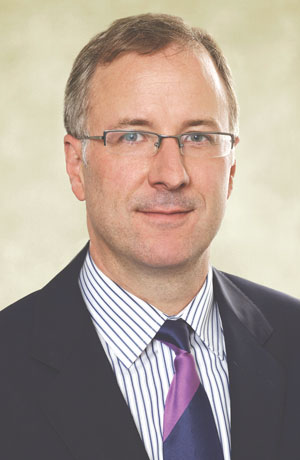Ontario Superior Court Justice Frank Marrocco’s ruling last week that lawyers for Nortel Networks Corp. executives won’t have to hand over the notes they took during their clients’ interviews with company investigators smells like little more than a pyrrhic victory for the criminal defence bar.

“The fact remains that the lawyers will have to come and testify against their clients,” says Glen Jennings of Gowling Lafleur Henderson LLP.
“Ordering the lawyers to go read the notes to see if they refresh their present memory and then come tell the court and the Crown what they remember is pretty small comfort indeed.”
Marrocco found that the notes had the protection of litigation privilege because they were made in contemplation of litigation.
“In performing his or her duty, a barrister has to be free from unnecessary interference,”
said Marrocco.
“The prospect of a barrister being required to disclose his or her notes of the evidence would inevitably mean that the barrister’s thoughts and observations are no longer his or her own.”
The fact remains, however, that Crown attorneys in the trial of former Nortel CEO Frank Dunn and former chief financial officer Douglas Beatty had successfully argued last month that Dunn’s counsel, Tom Heintzman and Junior Sirivar of McCarthy Tétrault LLP, and the lawyers for Beatty, James Douglas and Kara Beitel of Borden Ladner Gervais LLP, were eligible to testify about what happened and what was said during an internal investigative meeting in March 2004.
In that ruling, Marrocco reasoned that traditional solicitor-client privilege didn’t apply because third parties were present during that meeting.
But Jennings points out that the meeting took place almost a decade ago.
“I suspect the lawyers won’t remember a whole lot, with or without the notes, so as far as I’m concerned the ruling protecting the notes is much ado about nothing in this case,” he says.
“But if the events in question were more current, lawyers would be put in a very awkward situation whether or not the notes were produced.”
The silver lining is that the situation that arose in the Nortel trial is an unusual one because the accused’s lawyers were truly the source of last resort from the Crown’s perspective.
Indeed, the Crown first attempted to have the U.S. lawyers who conducted the investigation — they were the company’s lawyers, not counsel for the accused — as witnesses.
But the Americans indicated that they had no recollection of the meeting and pointed out that the U.S. rules extended privilege to their notes.
“The unfortunate thing was that the accused’s lawyers were the last ones standing, so to speak,” says Jennings.
“Had a recording of the interview been made, as is commonly done nowadays, the issue of the lawyers testifying would not have arisen.”
Despite the concerns, Tyler Hodgson of BLG, who represents Douglas and Beitel, is satisfied with Marrocco’s ruling last week.
“I can say that we’re very happy and we think it’s the right decision,” he says.
For more, see
"All eyes on Nortel privilege ruling this week."

 “The fact remains that the lawyers will have to come and testify against their clients,” says Glen Jennings of Gowling Lafleur Henderson LLP.
“The fact remains that the lawyers will have to come and testify against their clients,” says Glen Jennings of Gowling Lafleur Henderson LLP.